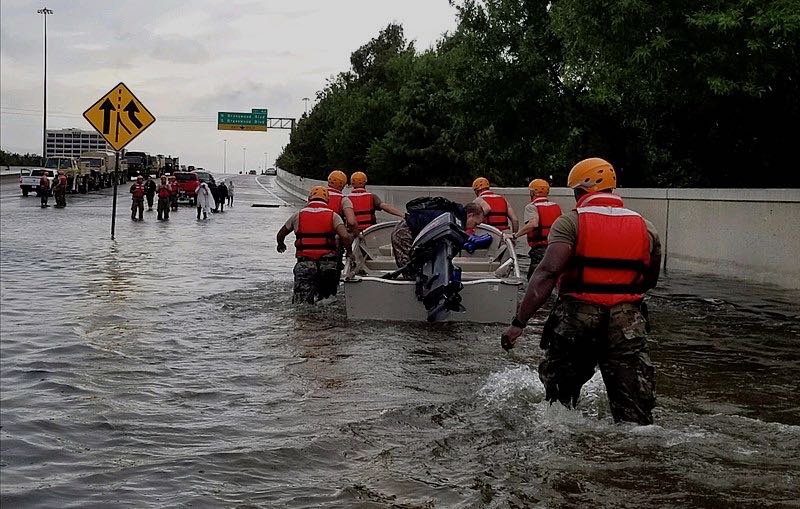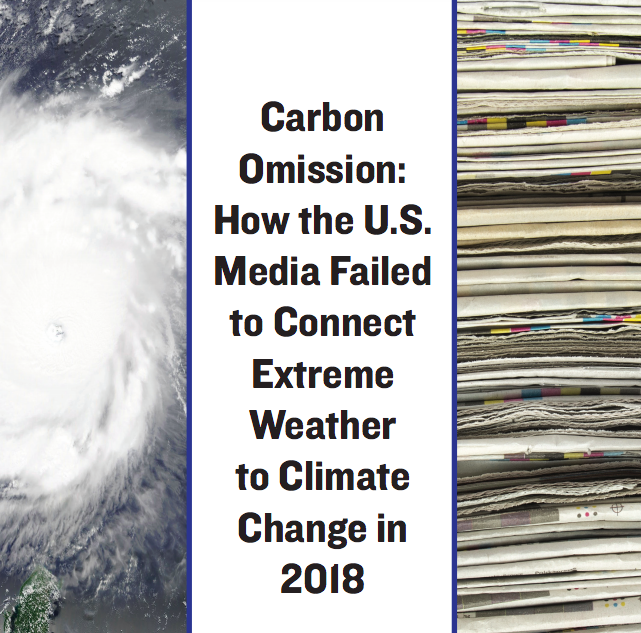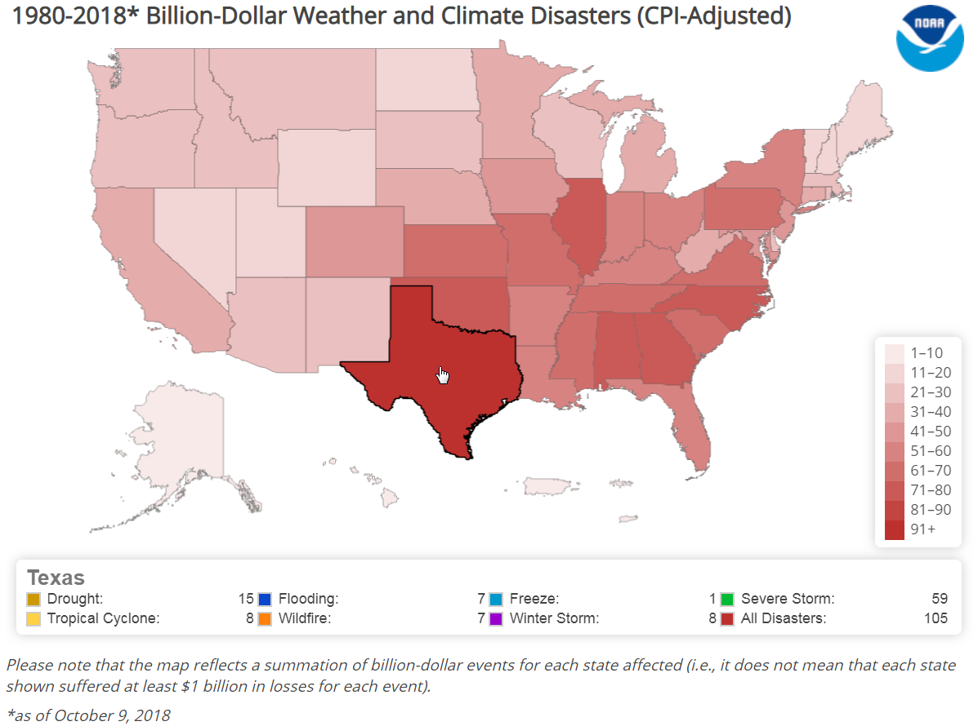Sponsored Post – from Public Citizen Texas
This post was written by Adrian Shelley, Director of the Texas Office of Public Citizen
Climate change is the defining issue of our time. Public Citizen believes that journalists and media outlets should give climate change the media coverage it deserves. Seven in ten Americans agree that they are interested in climate change and that the media should cover it more. Our “Cover Climate” campaign was launched to call attention to media outlets that are not adequately covering climate change.
A new report by Public Citizen’s Cover Climate campaign shows that media outlets typically do not discuss climate change when covering extreme weather events like heat waves, droughts, and hurricanes. The report, Carbon Omission: How the U.S. Media Failed to Connect Extreme Weather to Climate Change in 2018, shows that media outlets only mention climate change in conjunction with heat waves 34 percent of the time, for droughts only 34 percent of the time, and for last year’s hurricanes Florence and Michael, only 10 percent of the time.
Interestingly, papers in Florida, Louisiana, and Texas–all states affected by hurricanes in 2017 or 2018–are actually worse than their peers in other states at mentioning climate change in conjunction with natural disasters.
This is especially concerning in Texas, which is more vulnerable to natural disasters than any other state. In fact, based on an analysis by the National Oceanographic and Atmospheric Administration, Texas has experienced 44 percent of all billion dollar disasters in the United States since 1980.
The United States has experienced 238 billion dollar disasters since 1980, with 105 of those occurring in Texas. Meaning our state is second to none in its vulnerability to natural disasters and should be very concerned about the relationship between these disasters and climate change.
Despite this, Texas Governor Greg Abbott remains defiant on the question of climate science. Last month, Governor Abbott was presented with a letter from climate scientists explaining that there is a scientific consensus on climate change and that we can expect to see increasing consequences for our failure to act.
Abbott’s response? He can’t weigh in on the question of climate change because he is not a scientist.
This is not an adequate response. Nevertheless, it is a favored talking point by climate deniers. The argument that one must be an expert to make policy decisions is simply absurd. One can imagine the reaction if Governor Abbott, after a briefing by Texas teachers, asserted that he couldn’t make decisions about school finance because he isn’t a teacher. Or how about a Governor Abbott who wouldn’t weigh on the the abortion question because he isn’t a doctor?
In these areas, our Governor believes he is qualified to make policy pronouncements–as indeed any capable leader would. We rely on our elected officials not to be experts in each and every field, but to have the wherewithal to consult the experts and make policy decisions based on their recommendations.
This is all we ask of Governor Greg Abbott. No one expects him to become a climate scientist. His protestations that he cannot weigh in on the issue without personally possessing the expertise are a dodge, nothing more. If he refuses to answer important policy questions for the state, it is only because he knows he is out of step with mainstream science and public opinion on the issue.
This is why climate coverage by our state’s news media is so important. We cannot let our lawmakers dodge the issue any more. They need to know that when we discuss droughts, flood, heat waves, hurricanes, and yes, even polar vortexes, we will also be having a conversation about climate change. If the media continues the conversation, our policymakers will fall in line.
We aren’t asking them to be experts. We’re just asking them to listen to the experts.
Please note – editorials and sponsored posts are written by guest writers to inform and educate the community on a variety of different viewpoints, as well as to share information about local eco-friendly businesses and organizations. However, they do not necessarily reflect the opinions of the Austin EcoNetwork.





